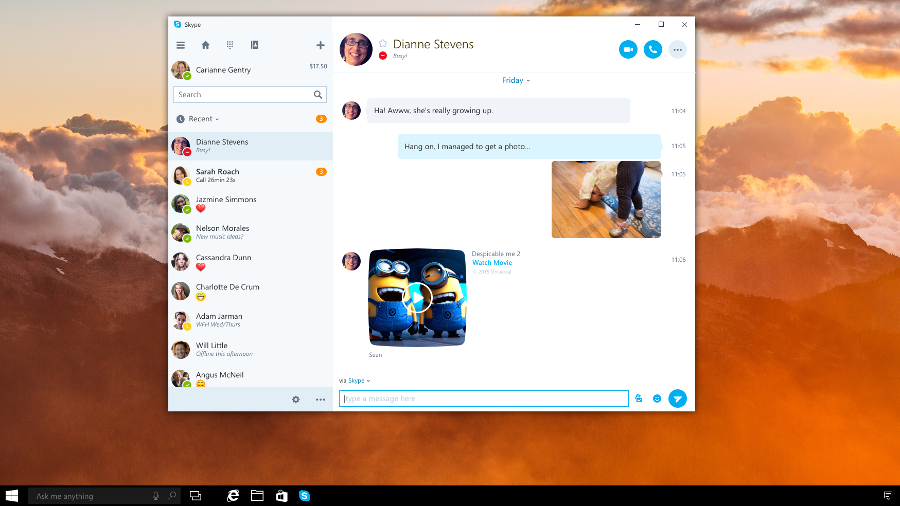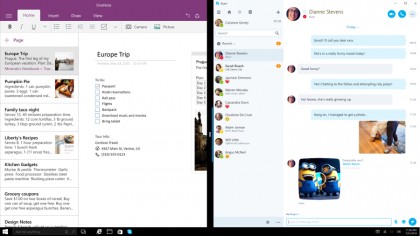Microsoft is about to change Skype radically
Skype on Windows 10 devices will be very different with the UWP app

Microsoft has announced that it will soon release the preview version of the Skype Universal Windows Platform (UWP) app to Windows Insiders.
Testers running Windows 10 PCs and tablets will be able to check out the new messaging app in the "coming weeks", Redmond says, so there's not long to wait now. The app won't immediately be usable on Windows 10 Mobile, but will follow for devices running that OS shortly.
So what can you expect from the new Skype app? Microsoft says it has learned a lot of lessons from the feedback given following the release of the consumer preview of Skype Integration in Windows 10 last autumn – which has seen a number of complaints.
One of the primary moans being the usability with larger screens on bigger tablets and hybrids, and desktop monitors, and of course that's a big part of what the Skype UWP app will tackle.
Redmond promises a more streamlined interface all round, and a simplified look and feel for the app, with unnecessary menus and duplicated functions being stripped out.
There has been a good deal of spring cleaning, basically, and the global menus are now in a new single settings menu, with contextual menus promised down the line.

Initial features
In the initial incarnation of this preview app, you'll be able to sign in with your Microsoft account, link a Skype ID, and then see your list of Skype contacts with the ability to initiate a chat, make one-to-one calls, send photos, and take part in existing group chats.
Sign up to the TechRadar Pro newsletter to get all the top news, opinion, features and guidance your business needs to succeed!
Emoticons and emoji will be available, and users will also be able to see what the other person is typing in chats.
So functionality will be fairly basic for this first release, although naturally enough, more features will arrive in subsequent versions.
Microsoft says that the next couple of releases will introduce the ability to create groups and use group messaging, voice and video calling. You'll also be able to share your screen, as well as files and video messages.
Another priority is making sure the app performs well and is responsive.
As for the broader future of Skype, if you want to stick with the existing Skype app on Windows 10 you most certainly can for the foreseeable, but eventually everything will be integrated into the UWP app.
But not before, Microsoft promises, the Skype UWP app becomes a high-quality and lightweight application with all features on-board.
Darren is a freelancer writing news and features for TechRadar (and occasionally T3) across a broad range of computing topics including CPUs, GPUs, various other hardware, VPNs, antivirus and more. He has written about tech for the best part of three decades, and writes books in his spare time (his debut novel - 'I Know What You Did Last Supper' - was published by Hachette UK in 2013).